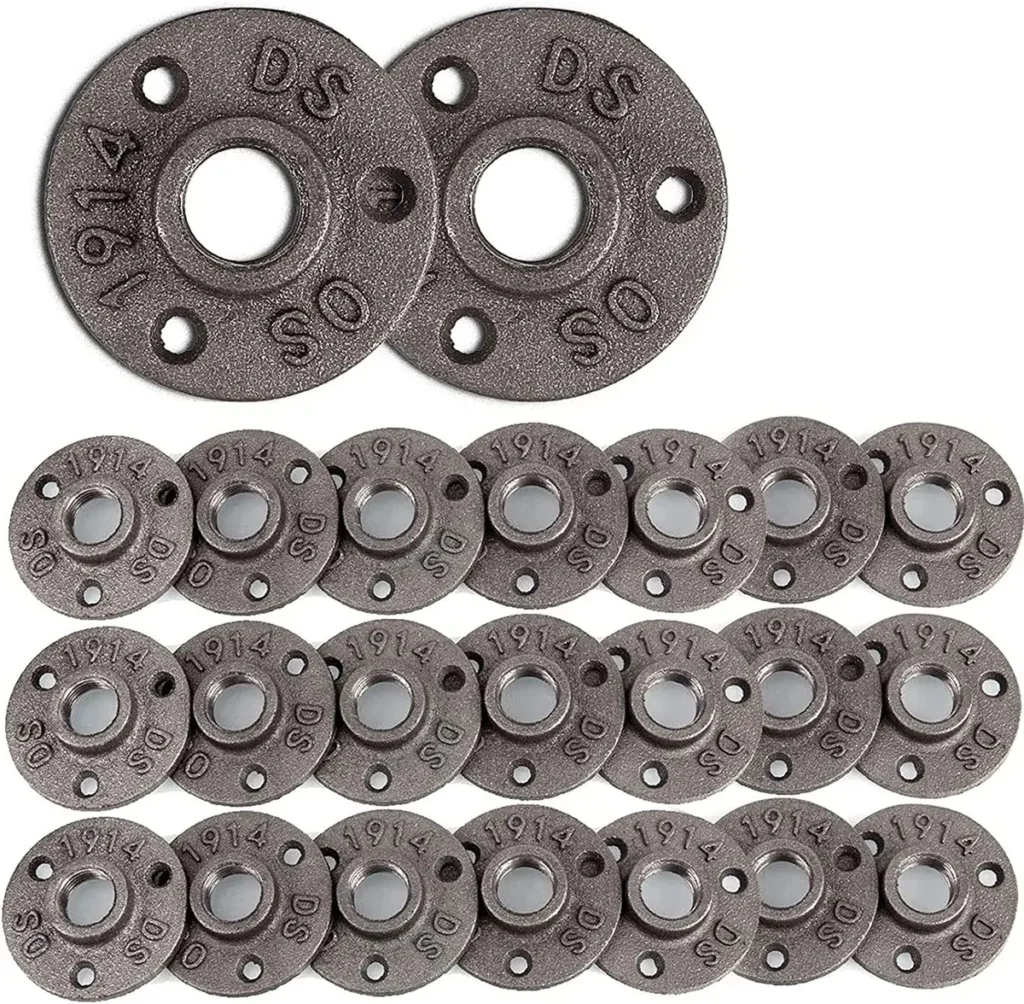Flanges are an essential part of any pipeline system, serving as connectors that join individual pipes together. They are used to create a secure, leak-proof connection between pipes, ensuring that fluids or gases flow smoothly and efficiently through the system. In this article, we will explore the different types of flanges used in pipelines, with a focus on black iron pipe flange.
Black Iron Pipe Flange
Black iron pipe flange is a type of flange used in pipeline systems that transport oil, gas, and other fluids. It is made from black iron, a type of steel alloy that is known for its durability and resistance to corrosion. Black iron pipe flange is designed to withstand high pressure and temperature, making it an ideal choice for applications in harsh environments.
Types of Flanges
There are several types of flanges used in pipelines, each with its unique characteristics and applications. Some of the most common types of flanges include:
1. Slip-On Flange
Slip-on flange is the most commonly used type of flange in pipeline systems. It is easy to install and requires minimal welding, making it a cost-effective option. Slip-on flanges are typically used in low-pressure applications and are not suitable for high-pressure systems.
2. Weld Neck Flange
A Weld neck flange is a type of flange that is welded to the end of a pipe. It is used in high-pressure applications and is known for its strength and durability. Weld neck flanges are typically used in oil and gas pipeline systems.
3. Blind Flange
A blind flange is a type of flange that has no hole in the center. It is used to block off the end of a pipe or to create a blind connection. Blind flanges are typically used in low-pressure applications and are made from materials such as carbon steel, stainless steel, or aluminum.
4. Threaded Flange
Threaded flange is a type of flange that has threads on the inside of the hole. It is used to connect pipes with matching threads, creating a secure and leak-proof connection. Threaded flanges are typically used in low-pressure applications and are made from materials such as carbon steel, stainless steel, or brass.

Advantages of Black Iron Pipe Flange
Black iron pipe flange offers several advantages over other types of flanges. Some of the benefits of using black iron pipe flange include:
1. Durability
Black iron pipe flange is made from black iron, a material that is known for its durability and resistance to corrosion. It can withstand harsh environments and high pressure, making it an ideal choice for oil and gas pipeline systems.
2. High Pressure Resistance
Black iron pipe flange is designed to withstand high pressure, making it suitable for use in high-pressure pipeline systems. It can handle pressure up to 2000 psi, making it an ideal choice for applications that require high pressure resistance.
3. Easy Installation
Black iron pipe flange is easy to install, requiring minimal welding and fitting. It can be easily slipped onto the end of a pipe, making it a cost-effective option for pipeline installation.
4. Versatility
Black iron pipe flange can be used in a variety of applications, including oil and gas pipeline systems, water supply systems, and sewage systems. Its versatility makes it a popular choice for a wide range of industries.
Conclusion
In conclusion, flanges are an essential part of any pipeline system, and black iron pipe flange is a popular choice for many industries. Its durability, high pressure resistance, ease of installation, and versatility make it an ideal choice for a wide range of applications. Whether you are working in the oil and gas industry, water supply industry, or sewage industry, black iron pipe flange is a reliable and cost-effective option for your pipeline needs.